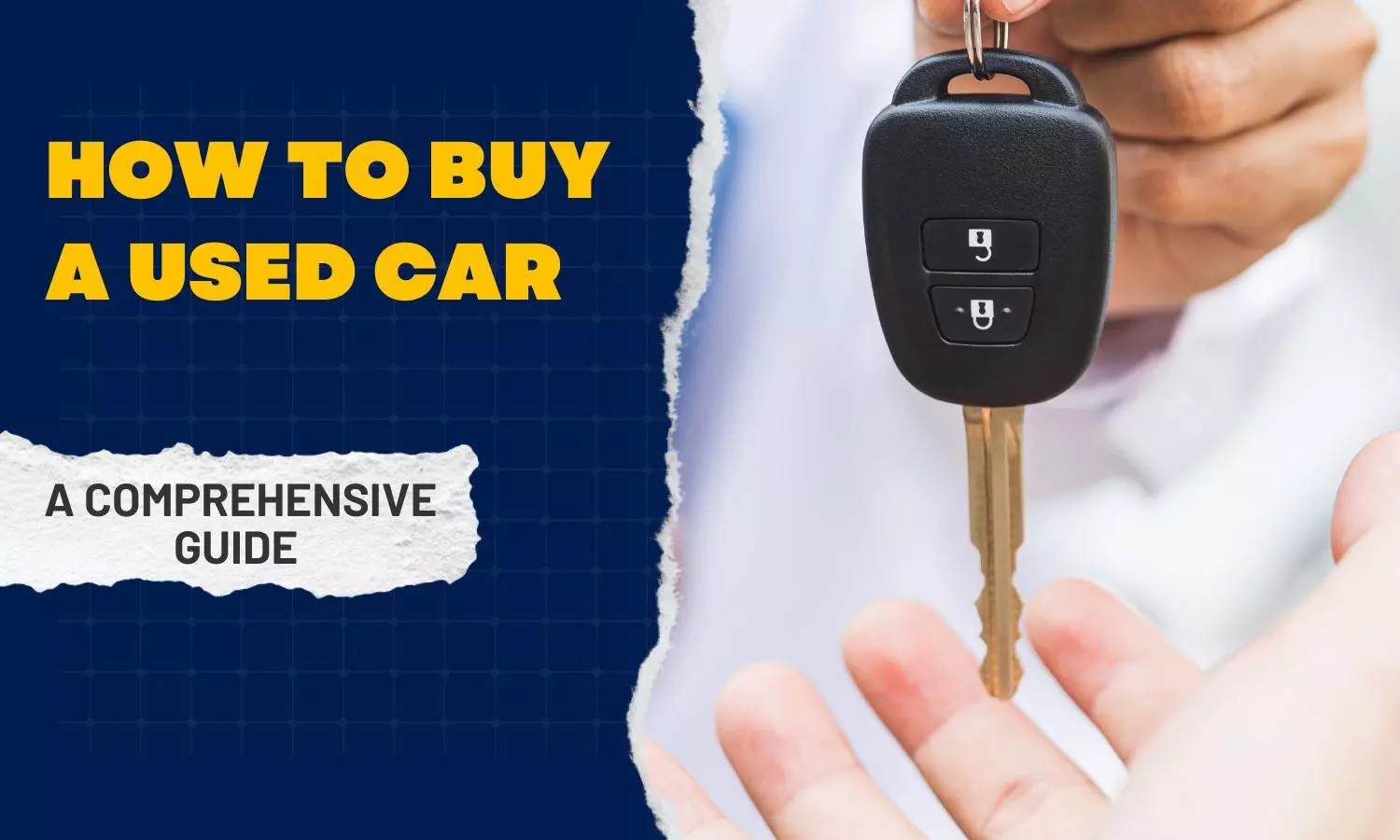All You Need to Know Before Buying a Used Car
Purchasing a used car can be an affordable way to achieve your goal of owning a vehicle, but finding the right one can be difficult. Here are some important tips to keep in mind before purchasing a second-hand car.
All You Need to Know Before Buying a Used Car

The first question that comes to our mind when we think about used cars is, "Why buy a used car? Is it worth it?" Buying a used car is a cost-effective way of fulfilling your dream of owning a car. However, it is essential to get the pre-preparation right. Irrespective of the fact whether a car is new or old, purchasing one is a challenge. But with the right research and efforts, you can find a truly rewarding deal.
Smart tips to buy a used car
Plan your budget: First things first, assessing your financial condition and planning your budget accordingly is important before making any big buy. Prior to purchasing a used car, it is vital to set a realistic budget. Do not get all caught up in the excitement and go beyond your budget. At that moment going a little overboard might seem easy but in the longer run it could end up taking a toll on your financial health.
Thorough research: After finalising the budget, the next step is to conduct thorough research and figure out the kind of car you are looking to buy. Internet has made it quite easy for us to take up all the research from our comfort space. Before jumping into the real market, it is wise to research online and explore buying locations and market prices. Having the right information at your disposal will aid you in making a well-informed decision.
Car inspection: Once you have found the car for you, it is time for inspection. Check for any dents, leaks, rust, tyre condition or any other kind of damage. Doing so will help you understand the condition of the car and the repairs it requires. The ideal thing to do is to allow a car expert to perform a detailed inspection to get a comprehensive evaluation of the vehicle.
Test drive: No matter whether the car is new or old, test driving is vital. This will give you insights into the car's current position and working. From the sound system, power windows, and auto-locking to the steering wheel, gears and brakes, test driving will help you assess all the elements of the car. In addition, it will offer you an understanding of the feel and handling of the car to determine if it meets your expectations or not.
Check for documents: From registration certificate and insurance to no objection and pollution certificate, it is vital to get all the documents in your hand before finalising the deal. Do not forget to get RC transferred in your name as this will officially confirm your ownership of the car.
Negotiate: Lastly, it is time to negotiate your way through the deal. Whether you are buying through a dealer or a buyer, there is always room for negotiation. Being informed about the market prices and offerings will provide you with an edge in negotiating. Also, do not forget to take the car's history into account when finalising its price.
Bonus tip!
Prefer daytime to go car hopping: Inspecting a car during the daytime will help you locate any possible damages such as scratches, minor dents, or paint flaws. Used car sellers end up tricking the buyers by placing the cars under artificial lighting in a way to hide any exterior damage. Ideally, a high-quality used car should have a well-maintained interior and exterior, be under two years old, have travelled less than 20,000 kilometres, and function smoothly, among other things.
Buying a car can be all exciting; however, it is important to be wary of too good-to-be-true deals. Doing your homework and getting an idea of the market scenario will provide you an edge in finding the best deal.

